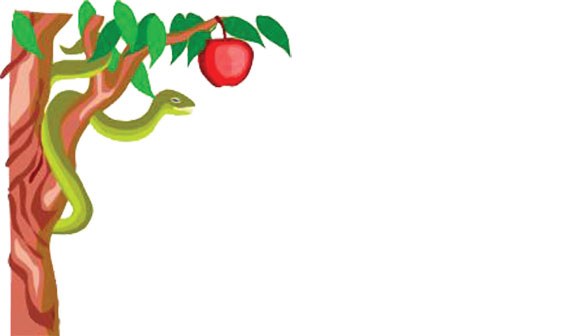Azadi ka Amrit Mahotsav Kolkata event honours four Clergymen
Pope Francis asks businesses to support working women: They’re ‘afraid to get pregnant’
Study: Christianity may lose majority, plurality status in U.S. by 2070
Indian politician declines Magsaysay Award under party pressure
Like John Paul II, Pope Francis heads to Kazakhstan during time of war

Jacob Chanikuzhy
Alfred Lord Tennyson wrote, “A lie which is half a truth is ever the blackest of lies.” In that case, the serpent made a head start in his professional career of lying by telling the worst of lies as it was a half truth concerning the best of human hopes. He promised them “You will not die… your eyes will be opened … you will be like God…” (Gen 3:4-5). What better hope can man ever have! All these will result from eating the forbidden fruit! God told them the opposite, “… in the day that you eat of it you shall die” (Gen 2:17). The serpent, the professional liar was making God a liar. In the satanic verses, God’s truth is presented as a lie and the serpent’s lie is depicted as truth.
The aftermath of eating the fruit is bit confusing. Adam and Eve did not immediately die; besides, Adam had a long life and died only at the age of 930. Thus, the serpent seems to have told the truth. In our mundane life, the serpent always appears to be correct. Those who eat the forbidden fruits not only do not die, but they appear to enjoy a long life with illicit pleasures. Again, the story clearly admits that after eating the fruit their eyes were opened (Gen 3:7). The serpent seems to have kept his promise. Finally, God Himself apparently recognizes that the humans have become like Him, “See, the man has become like one of us” (Gen 3:22). Yes, those who do not care for God’s commands and follow the serpentine insinuations live like little gods oppressing and exploiting the weak, the poor and the naive. In the world of ours, the serpent seems to be right and God wrong.
But, what happened in the world below and in the world beyond our sensory perceptions, verifies the veracity of the divine word. Adam who was created to live an immortal life in God’s garden is now destined to death. No matter however long someone physically lives, he/she still has to die once. Man is now haunted by death, even when death is not in the immediate vicinity. He is filled with deadly anxieties regarding his health and security. On the same day of his eating the fruit, he died in a more important realm – in the realm of his relationship with God. The fact that he was expelled from the garden of Eden on the same day he ate the fruit indicates that he was expelled from the presence of God. As God is the fountain of life, a separation from God amounts to a spiritual death.
The serpent had promised them they would be able to see. But when their eyes were opened what they saw was just the opposite of what they had expected. They had imagined that they would be able to see their godly glory and kingly majesty. But, what they saw in reality was their own nakedness and nothingness. They saw that they have been devoid of their glory and honour and exposed to shame and vulnerability. They saw what heights they have fallen from and to what depths of misery they have fallen into. The sight they now gained was a pain.
Finally, though the serpent assured them that they would be like God, now covered with shame they could not even think of standing in the presence of God. They tried to cover their shame by sewing the fig leaves together. But leaves will last most for a few hours. It shows the sad inadequacy of the human attempts to overcome the consequences of sin. Man can sin; but he cannot redeem himself from sin. Those who hoped to become rival gods were overwhelmed by fear when they heard God’s footsteps in the garden. They ran to hide behind the trees. Those who hoped to become equal to God could not entertain even the thought of facing God. Those who sin are on the run, but a futile run. In vain, they try to run away from God, from the consequences of sin, from shame and fear.
Sin gives us false promises of perennial pleasures, special privileges and godly states. In reality it takes away the joy of our life and our honour and privileges as the children of God.
Leave a Comment